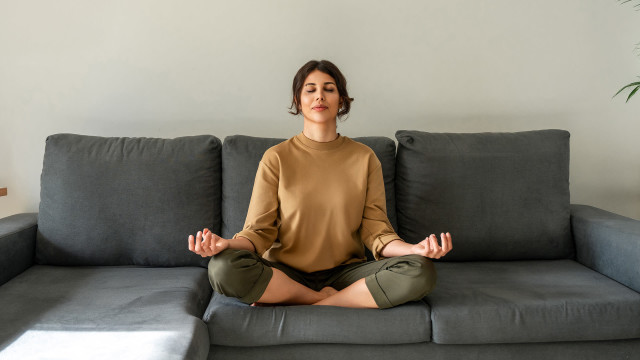4 Tips for New Meditators

The beginning of any new endeavor is exciting … until it's not. The same goes for meditation. When you first start, you'll likely have a lot of enthusiasm, but that can give way to feelings of frustration, boredom, and discomfort. This is entirely normal. Stick with it, though, and you'll be richly rewarded.
I like to tell people, "Know that meditation is not what you think it is, so you'll always be surprised." Keep that in mind, and be aware of the first few pitfalls to any practice. Here are four ways to navigate those as you begin your meditation journey.
1. Practice regularly
You cannot get the benefits of meditation if you don't regularly practice. It's another object we grab, except this object is inside of you, and the only way you're going to get to see it is if you do it.
Think about it this way: I can think about the gym, but my belly isn't going away just by thinking about exercising. I can go to the gym every two weeks, but my stomach isn't going away in that case, either. It will change if I go every day and follow a regimen.
Like meditation, it's cause and effect — you have to put in a regular effort.
2. Don't let your mind play tricks on you.
If you're doing meditation right — settling everything down, shutting off distractions, and looking at what's inside your mind — within a short time, you're going to see how much garbage you've got.
This can be overwhelming and create an aversion to building a practice that may manifest in procrastination or avoidance. Your mind may trick you into not looking at the things you must look at if you're going to progress.
The only way to get through this is to meditate regularly and ensure you're doing it correctly; observe what is inside your mind. You may realize you're more jealous than you thought or that you're the cause of the problem. Don't ruminate — you can overcome that. By identifying the problem, you can fix it.
3. Build up to it
If I wanted to be a runner, I wouldn't start with a marathon. It's the same way with meditation. Take small chunks that feel blissful. Then, as you're entering that state of deep, ecstatic concentration, stop the meditation before you let it drop. When you stop it at the peak and get up off the cushion, you'll begin to train your mind to enjoy the practice, which will help you maintain a connection with meditation over time.
It kept me meditating when I didn't want to. You remember feeling blissful, which may push your brain to repeatedly find that experience.
4. Set up a space
It helps to create a personalized, comfortable meditation space. Make it so private and so unique that no one else exists in that space when you close your eyes.
Follow these tips, and you'll be well on your way to creating a strong meditation practice.
Try this course, 21-Day Jump-Start to a Powerful, Joyous Meditation Practice by meditation teacher David Harshada Wagner to help kick-start your mindfulness routine.
Header photo: RealPeopleGroup/Getty Images







